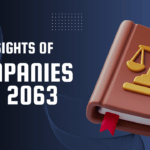
What is a Shareholder Agreement in Nepal?
A Shareholder Agreement is a legally binding contract that outlines the rights, responsibilities, and obligations of shareholders within a company.
It serves as a crucial document for establishing the framework of corporate governance and managing relationships between shareholders.
This agreement is vital as it helps to mitigate conflicts and uncertainties that may arise among shareholders by providing clear guidelines on issues such as decision-making, transfer of shares, dispute resolution, and protection of minority interests.
Who drafts the Shareholder Agreement?
Typically, a Shareholder Agreement is drafted by legal professionals with expertise in corporate law, often in consultation with the company’s founders and key stakeholders.
Legal counsel ensures that the agreement complies with relevant laws and regulations while addressing the specific needs and concerns of the shareholders.
Memorandum of Association in Nepal
What clauses should be included in a Shareholder Agreement?
Several key clauses are typically included in a Shareholder Agreement to address various aspects of shareholder rights and responsibilities.
These may encompass provisions related to decision-making processes, share transfer restrictions, dividend policies, dispute resolution mechanisms, management and control of the company, confidentiality obligations, and provisions for the protection of minority shareholders.
Clauses regarding the issuance of new shares, pre-emption rights, non-compete agreements, and exit strategies such as buy-sell provisions or drag-along and tag-along rights are commonly incorporated to anticipate and address potential future scenarios.
How to ensure a fair Shareholder Agreement?
To ensure fairness in a Shareholder Agreement, it is essential to facilitate open and transparent communication among all shareholders during the drafting process.
This involves engaging in comprehensive discussions to identify and address the concerns and objectives of each party.
Seeking legal counsel from experienced corporate lawyers can help ensure that the agreement is balanced and equitable, taking into account the rights and interests of all shareholders. incorporating mechanisms for dispute resolution, such as mediation or arbitration, can provide avenues for resolving conflicts amicably and preserving the integrity of the agreement.
Can I use a template for a Shareholder Agreement?
Yes, using a template for a Shareholder Agreement can be a starting point, but it’s crucial to customize it to fit the specific needs and circumstances of your company.
Templates can provide a basic structure and common clauses, but they may not fully address the unique requirements or complexities of your business.
What legal advice do I need for drafting a Shareholder Agreement?
Seeking legal advice from experienced corporate lawyers is essential for drafting a comprehensive and legally sound Shareholder Agreement.
Legal professionals can provide guidance on structuring the agreement to address the specific needs and concerns of your company and its shareholders.
They can also ensure that the agreement complies with relevant laws and regulations, mitigate potential risks, and anticipate and address future scenarios.
Legal counsel can assist in negotiating terms with other shareholders, drafting clear and enforceable clauses, and implementing dispute resolution.
Articles of Association in Nepal
How do I negotiate terms in a Shareholder Agreement?
Negotiating terms in a Shareholder Agreement involves open communication, collaboration, and compromise among shareholders. Start by identifying key issues and concerns and prioritize them based on their importance to each party. Engage in constructive discussions to find mutually beneficial solutions and be willing to make concessions where necessary Legal advice can also be valuable during negotiations to ensure that proposed terms are fair, legally enforceable, and in the best interests of the company and its shareholders.
Can a Shareholder Agreement be amended?
Yes, a Shareholder Agreement can be amended, but the process typically requires the consent of all parties involved, unless otherwise specified in the agreement. Any proposed amendments should be carefully considered and drafted to ensure clarity, legality, and fairness.
What happens if a Shareholder Agreement is breached?
If a Shareholder Agreement is breached, the consequences can vary depending on the nature and severity of the breach and the provisions outlined in the agreement. Common remedies for breach may include monetary damages, injunctive relief to prevent further violations, or specific performance to compel the breaching party to fulfill their obligations. the agreement may outline dispute resolution mechanisms such as mediation, arbitration, or litigation to resolve conflicts arising from breaches.
Are Shareholder Agreements legally binding?
Yes, Shareholder Agreements are legally binding contracts that govern the rights and obligations of shareholders within a company. Once executed by all parties involved, the agreement becomes enforceable under contract law. It is essential to ensure that the agreement complies with relevant laws and regulations and is drafted with clarity and specificity to avoid ambiguity and disputes. Legal counsel can assist in drafting and reviewing the agreement.
How to protect minority shareholders in a Shareholder Agreement?
To protect minority shareholders in a Shareholder Agreement, it’s essential to include provisions that safeguard their rights and interests. This may include clauses addressing issues such as voting rights, appointment of directors, access to information, dividend policies, and exit strategies. implementing mechanisms for dispute resolution and minority shareholder protection, such as tag-along rights, drag-along rights, or pre-emption rights.
Can a Shareholder Agreement be enforced internationally?
Yes, a Shareholder Agreement can be enforced internationally, but the process may vary depending on the jurisdictions involved and any applicable international treaties or conventions. It’s essential to consider the laws and regulations of each relevant jurisdiction and include provisions in the agreement regarding jurisdiction, governing law, and dispute resolution mechanisms to facilitate enforcement across borders. International arbitration or mediation may be preferred methods for resolving disputes arising from a Shareholder Agreement, as they offer neutral forums for adjudicating conflicts without the complexities of navigating multiple legal systems.
What happens if a shareholder dies or leaves?
When a shareholder dies or leaves, their shares typically pass to their estate or designated beneficiaries. The Shareholder Agreement may contain provisions addressing such events, including rights of first refusal, buy-sell agreements, or mechanisms for the company to purchase the departing shareholder’s shares.
How does a Shareholder Agreement address disputes?
A Shareholder Agreement addresses disputes by outlining mechanisms for resolving conflicts in a fair and efficient manner. This may include procedures for mediation, arbitration, or litigation, depending on the preferences and needs of the parties involved. the agreement may establish a dispute resolution committee or designate a neutral third party to facilitate negotiations and decision-making.
Can a Shareholder Agreement restrict share transfer?
Yes, a Shareholder Agreement can restrict share transfer to protect the interests of existing shareholders and maintain stability within the company. Common restrictions may include rights of first refusal, where existing shareholders have the opportunity to purchase shares before they are offered to external parties, or approval requirements for transfers to ensure compatibility with the company’s goals and values. These restrictions help prevent unwanted changes in ownership and maintain control over the composition of the shareholder base.
How to maintain confidentiality in a Shareholder Agreement?
Maintaining confidentiality in a Shareholder Agreement involves incorporating provisions that restrict the disclosure of sensitive information to third parties without proper authorization. This may include non-disclosure clauses prohibiting shareholders from sharing proprietary business information or trade secrets with competitors or other parties. the agreement may outline procedures for handling confidential information, such as restricting access to authorized individuals and implementing safeguards to prevent unauthorized disclosure or use. Regular training and awareness programs can also help reinforce the importance of confidentiality among shareholders and employees.
Can a Shareholder Agreement be terminated?
Yes, a Shareholder Agreement can be terminated under certain circumstances, as specified within the agreement itself or by mutual consent of all parties involved. Common termination triggers may include the dissolution of the company, bankruptcy, or a fundamental breach of the agreement by one of the parties. the agreement may outline procedures for termination upon the occurrence of specific events, such as a change in control or the sale of all or substantially all of the company’s assets.
What happens if there is a change in company ownership?
If there is a change in company ownership, the Shareholder Agreement may contain provisions addressing the rights and obligations of shareholders in such circumstances. These provisions may include rights of first refusal, tag-along and drag-along rights, or mechanisms for adjusting voting rights and board representation to reflect changes in ownership. the agreement may specify procedures for notifying shareholders of changes in ownership and obtaining their consent.
How does a Shareholder Agreement address dividends?
A Shareholder Agreement addresses dividends by establishing policies and procedures for distributing profits to shareholders. This may include specifying the timing and frequency of dividend payments, the calculation method for determining dividend amounts, and any restrictions or conditions on dividend distributions. The agreement may also outline mechanisms for reinvesting profits into the company or allocating dividends proportionally based on share ownership.
How does a Shareholder Agreement align with company objectives?
A Shareholder Agreement aligns with company objectives by establishing a framework for governance and decision-making that supports the company’s goals and values. This may include provisions for defining the company’s mission and vision, setting strategic priorities and performance targets, and outlining roles and responsibilities for shareholders in achieving these objectives. the agreement may incorporate mechanisms for ensuring accountability, transparency, and alignment of interests among shareholders and management.







